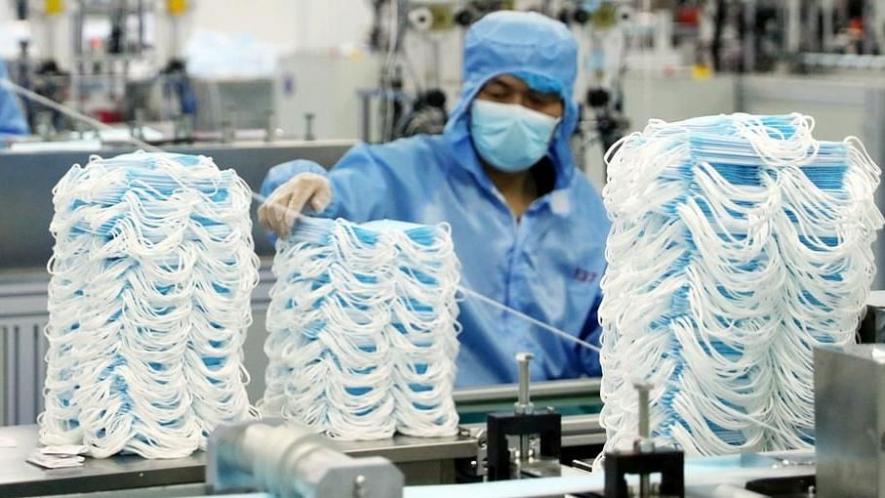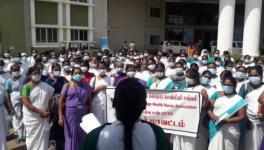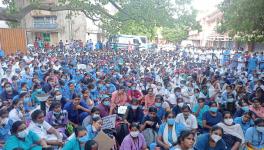COVID-19: Study Says Masks, Good Ventilation Prevent Spread Better than Social Distancing in Closed Spaces

Representational Image. Image Courtesy: IANS
At a time when universities and schools across the world are looking to reopen, a recent study says that masks and good ventilation systems can be better and more important in containing COVID-19 spread that social distancing, in a closed space.
The research was published in the peer-reviewed scientific journal Physics of Fluids and focuses on a classroom setting where the presence of a good ventilation system and the use of masks was studied. The researchers created a computer model of a classroom comprising students and a teacher. They then modeled the pattern of airflow in the room and disease transmission. With these the researchers could estimate the airborne driven transmission risk posed by COVID-19.
However, a few caveats here. The study is for certain dimensions of rooms with air filters. It may not be applicable in smaller rooms with a higher number of students or people in a room, with or without adequate ventilation, as may be the case in India.
It is well known that COVID-19 spreads via airborne particles which are caused by sneezing, coughing or an infected person talking. The airborne particles containing the virus are inhaled by another person and thus transmission happens.
An important part of the study was the model classroom, which was 9.5 m long and 7.0 m wide with its height at 2.7 m. The model had students with masks (anyone among them could be infected) on with the teacher masked as well.
The researchers then analysed airborne transmission based on two situations. The first case was with the classroom well ventilated while the other did not. The study took on board two computational approaches used in fluid dynamics studies. The first is known as the Wells-Riley approach, where indoor transmission probabilities of fluid particles (like air particles ) is studied while the other is computational fluid dynamics, commonly used to understand the aerodynamics of cars, aircrafts or the movement of submarines under water.
Commenting on the study, Michael Kinzel, a co-author of the study and an assistant professor at the University of Central Florida, was quoted saying:“The research is important as it provides guidance on how we are understanding safety in indoor environments (sic).”
Wearing masks was found to be beneficial in preventing transmission as masks provide a weak puff of warm air due to breathing and the aerosols could then move vertically. This movement of the aerosols (containing the viral particles) prevented them from reaching adjacent students.
"The study finds that aerosol transmission routes do not display a need for six feet social distancing when masks are mandated. These results highlight that with masks, transmission probability does not decrease with increased physical distancing, which emphasises how mask mandates may be key to increasing capacity in schools and other places,”he reportedly said.
Moreover, a good ventilation system with an air filter reduces the risk of infection by between 40% and 50% in comparison to classrooms without a ventilation source. A good ventilation system creates a steady flow of air in and out and this air-flow carries many aerosol particles (with viral particles) to the air filter. The air filter removes a portion of the aerosols. In contrast, in a room without good ventilation, the aerosols concentrate above the people inside the room.
Kinzel further explained their results: “If we compare infection probabilities when wearing masks, three feet of social distancing did not indicate an increase in infection probability with respect to six feet, which may provide evidence for schools and other businesses to safely operate through the rest of the pandemic. The results suggest that ventilation systems and mask usage are most important for preventing transmission and that social distancing would be the first thing to relax (sic).”
Get the latest reports & analysis with people's perspective on Protests, movements & deep analytical videos, discussions of the current affairs in your Telegram app. Subscribe to NewsClick's Telegram channel & get Real-Time updates on stories, as they get published on our website.
























